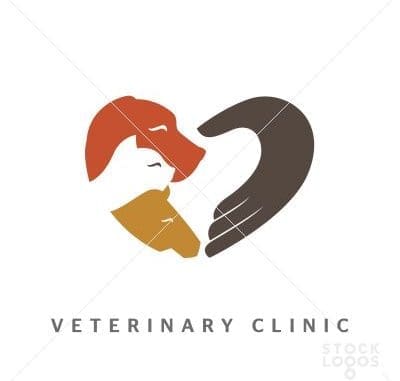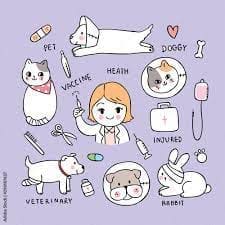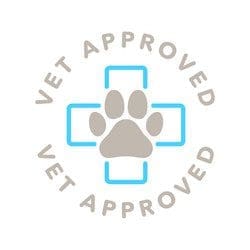
People worldwide like their pets, which bring them happiness, love, and companionship. Whether they are small mammals, birds, fish, cats, dogs, or other animals, pets have a significant impact on our daily lives and those of our family. They give us unconditional love and support on a deep emotional level, and they may even improve our general wellbeing. The benefits to owning a pet are endless. As it is important for children and grown ups to attend regular checkups, vet is also important for your pet.

The vast majority of animals only require a warm, secure, and protected area to live in addition to enough food, drink, and exercise. One of the most vital pieces of advice is to get to know your veterinarian well enough to the point where you can call them anytime a problem arises. Additionally, they’ll be able to inform you with certainty when to take your dog to the vet.
They will give you their everlasting love, fidelity, and company in return. Cats can be a touch fickle, while dogs are famed for their unconditional love. However, having a furry buddy ensures that you will always have a small creature at home who is eager to greet you with a wagging tail or a purr. Maintaining your pet’s health and wellbeing requires regular trips to the vet. Regular veterinary care ensures prompt treatment and improved quality of life for your animal friend by helping to avoid and detect potential health issues early on. Here are a few tips on when one should visit the vet.
- REGULAR CHECK-UPs:- Most health issues can be avoided if the routine checkups are carried out properly. Even if your pet seems to be in good health, schedule routine wellness examinations for them. Depending on the age and species of your pet, the frequency of these visits may change. Adult pets should typically have a yearly checkup; younger and older animals may need more frequent checkups.
- ELDERLY PET-CARE:- Pets may need more regular veterinary visits as they become older. Age-related illnesses like arthritis, organ malfunction, and dental issues are common in senior pets. Regular examinations can aid in keeping an eye on their health, managing any chronic diseases, and offering the proper support and care.
- TIMELY VACCINATIONS:- Make sure your pet receives the proper immunisations, per your veterinarian’s advice. Vaccines are typically given to pets in their first few months of life to protect them against common infectious diseases. Periodic booster doses could be necessary to keep immunity.
- DENTAL CHECK-UPS:- For pets, dental health is important. Pain, infections, and other systemic health disorders can result from dental defects. Make an appointment for your pet’s annual dental checkups so the veterinarian may examine the teeth, clean them as necessary, and offer advice on how to care for your pet’s teeth at home.
- PROTECTIVE SERVICES:- Potential health issues can be recognised and prevented with regular veterinary appointments. Preventive measures include heartworm prevention, dental care, parasite control (such as deworming), flea and tick control, and parasite prevention may be suggested by your veterinarian. These precautions can aid in shielding your pet from typical medical issues.
- SYMPTOMS:- A veterinarian should be consulted right away if you detect any changes in your pet’s behavior, appetite, level of energy, or other indications of sickness. Sneezing, coughing, lameness, abnormal urine or defecation, abnormal skin problems, excessive thirst, vomiting, diarrhea, tiredness, loss of appetite, and abnormal bowel movements are all typical symptoms of sickness.
- INJURIES:- Consult a veterinarian right away if your pet sustains an extensive wound, has an accident, or develops rapid, serious symptoms. To secure the best possible outcome for your pet’s health and wellbeing, it’s critical to act swiftly in an emergency.
- LONG-TERM HEALTH MONITORING:- Veterinarians can monitor changes in a pet’s health over time by keeping a current record of all wellness examinations, immunisations, and diagnostic procedures. This longitudinal data is useful for identifying patterns, seeing small changes, and assessing the efficiency of continuing interventions or management techniques.





Be the first to comment